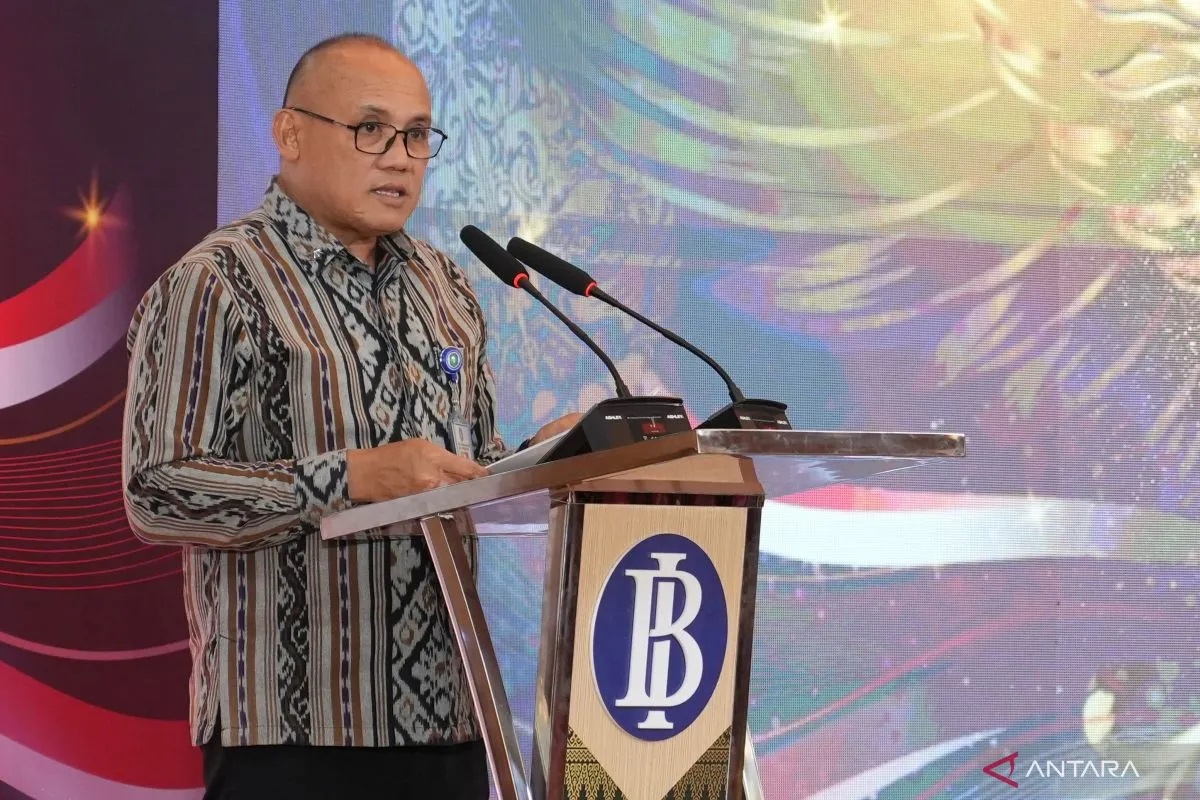News
West Kalimantan, BI makes six steps to stimulate province's economy
WINDONESIA December 5, 2024 West Kalimantan Provincial Government Regional Secretariat Economic and Development Assistant. (Antara/Rendra Oxtora)
West Kalimantan Provincial Government Regional Secretariat Economic and Development Assistant. (Antara/Rendra Oxtora)
The West Kalimantan Provincial Government and Bank Indonesia (BI) West Kalimantan Representative Office formulated six strategic steps which are are designed to ensure that the West Kalimantan economy continues to grow after the COVID-19 pandemic and is able to compete at the national level.
"Synergy between various parties is very important to overcome economic challenges, including maintaining the people's purchasing power, increasing productivity, and encouraging investment. We focus on strategic steps so that West Kalimantan's economic growth is more stable and could exceed the national growth rate," West Kalimantan Provincial Government Regional Secretariat Economic and Development Assistant Ignasius IK stated in Pontianak City, West Kalimantan on Dec. 1, 2024.
Ignasius explained that the collaboration carried out by West Kalimantan, Bank Indonesia, and other parties emphasized economic policies through six strategic steps.
The first step is controlling inflation and maintaining people's purchasing power, which is carried out by holding affordable market operations, affordable food movements, and planting local commodities such as chilies and vegetables. In addition, the West Kalimantan Provincial Government regularly holds high-level meetings of the Regional Inflation Control Team (TPID) to ensure price stability.
The second step is increasing the productivity of oil palm plantations, which is achieved through increasing transparency for the price of oil palm fresh fruit bunches by accelerating price determination from once every two weeks to once a week.
Indonesia Sustainable Palm Oil and Roundtable on Sustainable Palm Oil certifications are also encouraged to increase the competitiveness of the province's palm oil products in the international market.
The third step is increasing agricultural production, with dry unhusked rice (GKG) production estimated to rise by 14.24 percent year-on-year (yoy) to 799,990 of dry unhusked grain (GKG) in 2024. This increase is supported by agricultural land intensification and extensification programs in various regions within the province.
"Fourth, encouraging investment in leading sectors. Until the third quarter of 2024, investment in West Kalimantan was recorded at Rp12.72 trillion, with the basic metals, plantation, and food industries being the largest contributors. Accelerating the construction of aluminum smelters is expected to increase the added value of the mining sector," Ignasius said.
The fifth step is maximizing the development of connectivity infrastructure, with West Kalimantan Provincial Government having accelerated infrastructure development to support goods distribution from production centers to markets and ports. This effort aims to increase logistics efficiency and strengthen the competitiveness of the province's regional economy.
"Finally, the sixth step is to strengthen digitalization and synergy for a sustainable economy," he said.
Meanwhile, Bank Indonesia West Kalimantan Deputy Head David Sipahutar emphasized that the importance of digitalization in strengthening the regional economy.
"Increasing digital payment acceptance and cross-sector collaboration are [our] priorities. They will increase economic efficiency while supporting inclusive growth," he said.
The Digital Economy Festival planned for 2025 in West Kalimantan is one of BI's concrete steps in promoting technology-based innovation. David emphasized that the strategic step aims to make West Kalimantan one of the regions with a resilient and sustainable economy.
"With synergy and joint commitment, West Kalimantan is ready to support national economic growth while improving people's welfare," he said.
David hoped that those steps will be able to answer the challenges of the post-pandemic economy and maximize West Kalimantan's superior potential for long-term growth.

